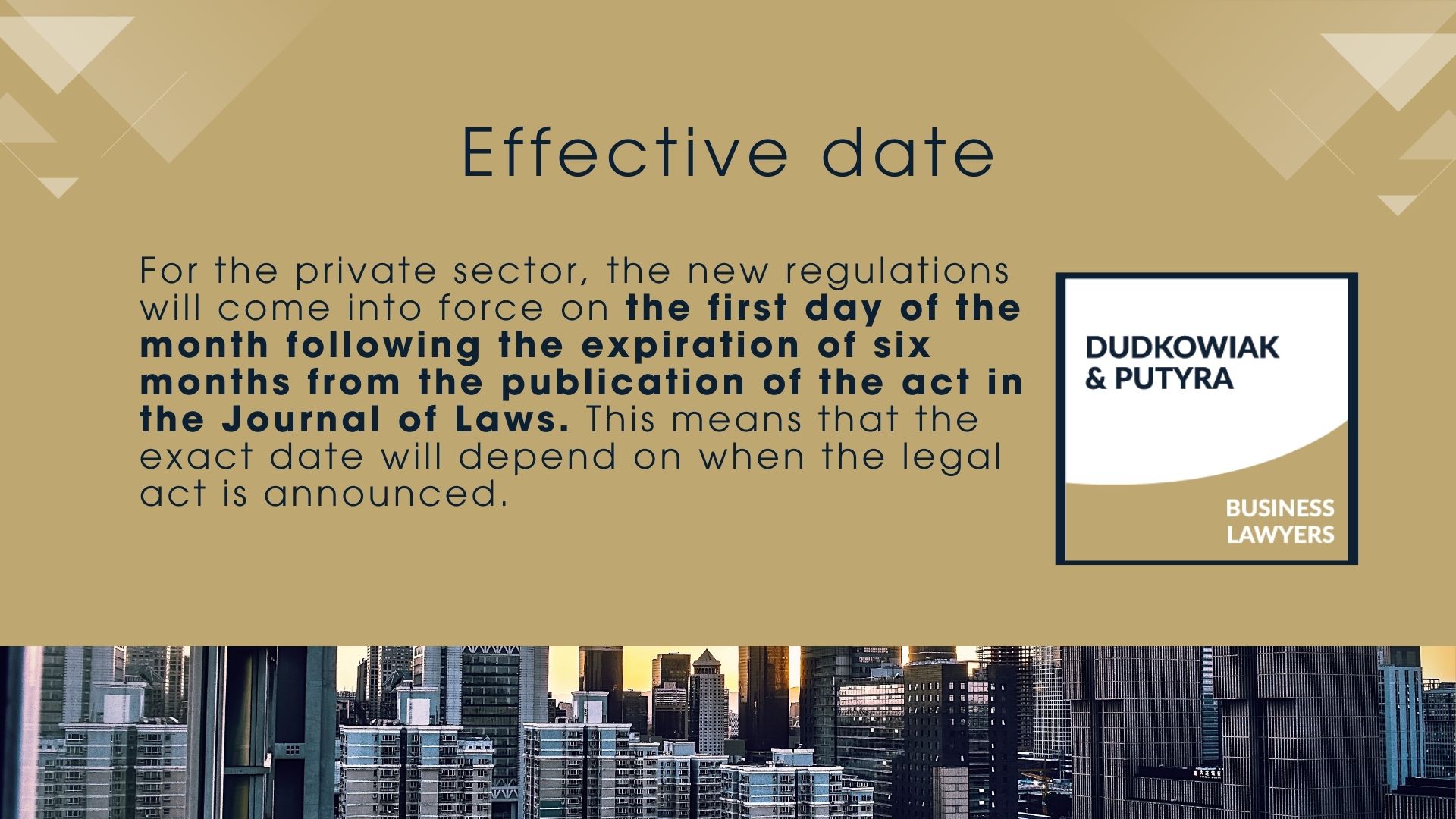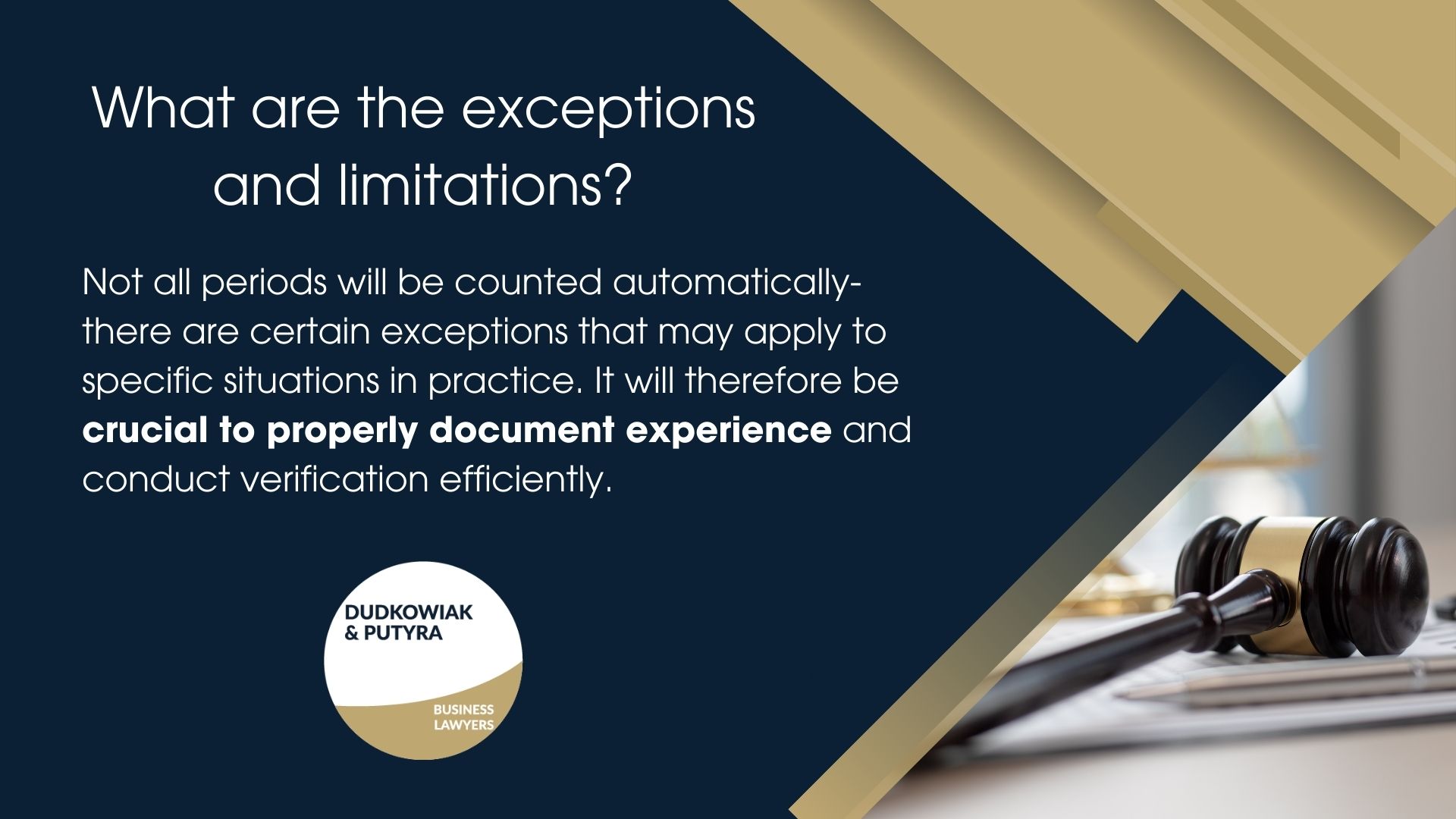Amendment to seniority rules approaching- guidance for HR departments
In June, we wrote about planned changes concerning seniority-we announced that the period of employment would include, among other things, running a business, civil law contracts, and experience gained outside Poland. We also pointed out how employers can prepare for the upcoming reforms.
Today, the bill is already at the next stage of work in the parliament, and we present new, practical tips that will allow companies to plan their HR processes in advance.
Effective date
Although the media often mention the date of January 1, 2026, the regulations provide for a different mechanism. For the private sector, the new regulations will come into force on the first day of the month following the expiration of six months from the publication of the act in the Journal of Laws. This means that the exact date will depend on when the legal act is announced.

What will be the new responsibilities of employees and employers?
Employees hired on the date of entry into force of the new regulations will have 24 months to submit documents confirming their previous periods of professional activity.
- If they fail to provide evidence within this period, the period in question will not be taken into account when determining their length of service.
- This means that employees will have to actively collect documents, while employers will have to establish clear information and document circulation procedures.
The planned changes will have a real impact on employers. The new rules for counting periods of professional activity towards seniority may affect a number of employee benefits, including:
- the amount of severance pay,
- the length of notice periods,
- the amount of vacation leave,
- other benefits dependent on seniority.
What periods will be added?
The scope of activities that will be included in the length of service will be broad and will include, among others:
- running a business– provided that pension, disability, or accident insurance contributions were paid,
- cooperation in running a business (e.g., by a spouse)– also subject to the requirement to pay contributions,
- civil law contracts (contracts of mandate, service contracts, agency contracts) – during periods when the employee was covered by pension and disability insurance,
- persons cooperating under civil law contracts– on the same terms,
- civil law contracts of pupils and students up to the age of 26- despite the lack of social security contributions, they will be included if the employee documents the performance of work,
- start-up relief period– six months of running a business without mandatory contributions will also be taken into account,
- period of suspension of activity due to childcare– if pension and disability insurance contributions were paid,
- employment abroad– any documented period of work, regardless of the insurance system; any reliable document (e.g., contract, employment certificate, attestation) may serve as proof.
What are the exceptions and limitations?
Not all periods will be counted automatically- there are certain exceptions that may apply to specific situations in practice. It will therefore be crucial to properly document experience and conduct verification efficiently.

How to prepare for change?
- Prepare internal procedures– inform employees about new responsibilities and deadlines.
- Create a document collection system- so that HR can efficiently verify and archive new certificates.
- Plan for the impact on vacations– establish conversion rules and communicate them to employees.
- Monitor further legislative work– the regulations are currently before parliament and may still be subject to change.
Changes in the regulations on length of service mean that many people will be able to acquire entitlement to longer leave and other benefits dependent on length of service more quickly. For employers, this means a need to adapt HR procedures, and for employees, an opportunity to have their entire professional achievements to date recognized, including those from business activities or work abroad.
Do you need support in preparing HR procedures?
Contact our team. We advise employers on how to properly implement new regulations, avoid risks, and adapt their HR systems to upcoming changes.


